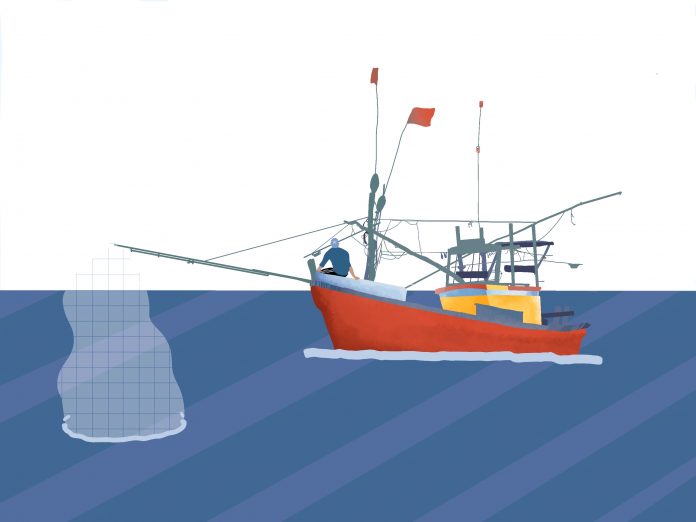Ladann Kiassat
Science & Technology Editor
Students all over the world come to UC Santa Barbara (UCSB) to live next to ocean life. Besides the scenic aspect of UCSB, students also get the amazing opportunity to study the aquatic species that are present in their own backyard. With our world’s growing population, modern-day fishing tactics that aim to capture more fish may destroy our underwater world.
Industrialism and overfishing have caused a decrease in the fish population throughout the years, but one thing that scientists did not predict was the change in evolutionary behavior of these fish. Fish form schools by grouping together, which protects them from predator attacks.
The formation of schools has become a keen evolutionary tactic for fish, but schools of fish are more vulnerable to capture by modern fishing techniques, in which entire schools of fish are captured. Scientists believe that this occurrence could lead fish to be more hesitant to form large schools. A team of scientists from UCSB, the University of Washington, and the Santa Fe Institute is exploring this idea on whether these high levels of industrial fishing could potentially change the overall schooling behavior in fish.
Using an evolutionary model, these scientists have concluded that enough industrial fishing could discourage fish from forming large schools, choosing rather solitary behavior or small schools. In an interview with the department of Ecology, Evolution and Marine Biology at UCSB, Ana Guerra – a graduate student studying community ecology, coral reef fish biology, fish behavioral ecology – explained that this behavioral change may be irreversible.
“[They] do not know if this is happening out there in the ocean, that fish are losing their tendency to form big schools due to industrial fishing practices, but our model shows that it could,” she said. “And that if it indeed happens, it could be very difficult to reverse.”
The team’s findings outline how the modeling procedure took place for this conclusion to be drawn. The research described how “modelled the fisheries-induced selection of social behavior in schooling fish indicating that as the prevalence of mass-capture fishing pressure increases relative to natural predation (ρ), individual preferences shift towards smaller group sizes.” Furthermore, it concludes that “while evolving social preferences can save a population from collapse, it may still cause unfavorable ecological consequences,” such as an irreversible effect on ecosystems that rely on the abundance of these schools of fish.
This change of schooling behavior has severe consequences that would impact our world’s oceans to unfathomable extent. In addition to the worries of global warming and population increase, this detriment to our wildlife can lead to extinction of certain species that rely on schooling fish for either protection or feeding.
Ecology has become a major area of study, because if we don’t start to mitigate the damage we’re doing to the environment, in years to come, we will have less and less species populating on our earth to study. As scientists are fighting tirelessly to save the earth’s ecosystems, it is essential that big fishing companies and citizens of the globe do the same.
Illustrations by Esther Liu











